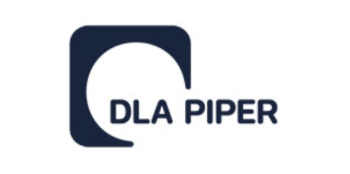Identity fraud exists in in-person and remote interactions. Notaries are used to protect against identity fraud and are responsible to verify the identity of a principal as the person the principal purports to be. However, fraudsters may succeed when notaries fail to fulfill their duties when conducting in-person or remote notarizations. Identity fraud forms the basis of the first lawsuit filed in connection with a notarial act performed using remote online notarization (RON).
RON enables a notary to use audio-video communication technology and third-party identity verification services to perform a notarial act for a remote signer.[1] RON technology and third-party services are designed to support and supplement notarial duties. The notary remains obligated to independently verify the identity of the principal and may use RON technology and third-party services as aids to support such identification.
Additionally, RON produces an evidentiary artifact not available in an in-person notarization. RON technology creates a recording of the audio-video communication session which includes the spoken words of all participants to the session, as well as the live images of each participant's webcam video feed.
On November 30, 2021, Mohan Fang filed a first amended complaint in the Superior Court for King County, Washington against multiple defendants in connection with a fraudulent sale of her real property. See, Fang v. Nexus Development Holdings, et al, Case No. 21-2-15437-5 SEA (Sup. Ct. King Cty WA, filed November 30, 2021). While Ms. Fang was out of the country, an unknown female, Jane Doe #1, is alleged to have impersonated Ms. Fang and closed on a private sale of Ms. Fang's King County real estate. The closing included a warranty deed that Jane Doe #1 signed and had notarized using RON. The complaint charges the RON notary, the notary's employer and the title company involved in the sale with negligence in failing to properly identify Jane Doe as an imposter.[2]
The complaint does not address whether Jane Doe #1 took and passed third-party identity verification services usually employed in RON transactions, such as credential analysis and dynamic knowledge-based authentication. The RON notarial act was performed by a notary commissioned by the state of Virginia. Pursuant to Virginia law, the notary is required to establish "satisfactory evidence of identity" of the principal which may be based on audio-video communication technology, but which must be confirmed by use of such third-party identity verification services.[3]
Ironically, Ms. Fang appears to rely upon the RON audio-video communication technology to support her claims of negligence. The complaint alleges that, during the RON audio-video communication, the notary asked Jane Doe to hold up her license to the camera for verification. However, the image of the license was not clear, nor was the text on the license intelligible. Additionally, the notary allegedly failed to request that Jane Doe display the back of the license for verification. The complaint further alleges that the notary "did not listen to the information provided by Jane Doe #1 which clearly reflects that she is an imposter."
These allegations are apparently based on the recording of the audio-video communication created by the RON technology. This recording would not have been created had the notarization occurred in person, and the only evidence of an in-person notarial act would have been the notary's journal entry. Thanks to use of RON technology, Ms. Fang and the court are able to view the RON notary's acts and the acts of Jane Doe #1 during the entire online notarial session.[4]
Notaries and their employers should take steps to ensure they receive full and proper training in the conduct of RON and the continuing duties of the notary as necessary to protect against identity fraud and negligence claims.






